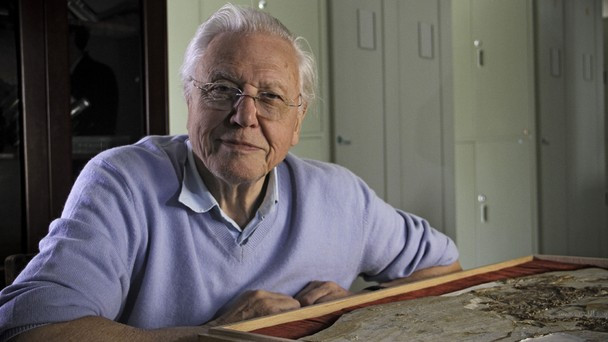David Attenborough: Human Natural Selection has Stopped and Things will Get Worse
Human evolution stopped when people were able to rear almost all of their children, says pessimistic Lives of Animals presenter

David Attenborough has pronounced a grim outlook for mankind, saying he is not optimistic about our future and warning that things will only get worse.
The veteran broadcaster, 87, said natural selection in humans had stopped as a result of low infant mortality rates and that people needed to be convinced that big families were irresponsible.
In an interview with the Radio Times, he said: "We've stopped evolving. Because if natural selection, as proposed by Darwin, is the main mechanism of evolution - there may be other things, but it does look as though that's the case - then we've stopped natural selection.
"We stopped natural selection as soon as we started being able to rear 95-99% of our babies. We are the only species to have put a halt to natural selection.
"Stopping natural selection is not as important, or as depressing, as it might sound - because our evolutionary process is now cultural.
"Humans have a great cultural inheritance as well as a physical, genetic inheritance - we can inherit a knowledge of computers or television, electronics, aeroplanes and so on. Each generation has got all these books that tell them these things, so our cultural evolution is proceeding with extraordinary swiftness."
While remaining critical of China's one-child policy, he said reducing population numbers was important to fate of the planet.
"It's the degree to which [the policy] has been enforced which is terrible, and there's no question it's produced all kinds of personal tragedies," he said.
"On the other hand, the Chinese themselves recognise that had they not done so there would be several million more mouths in the world today than there are now.
Large families irresponsible
"If you were able to persuade people that it is irresponsible to have large families in this day and age, and if material wealth and material conditions are such that people value their materialistic life and don't suffer as a consequence, then that's all to the good.
"But I'm not particularly optimistic about the future. We're lucky to be living when we are because things are going to get worse.
"I'm luckier than my grandfather, who didn't move more than five miles from the village in which he was born. I have all kinds of pleasures and luxuries that I appreciate and I'm very, very fortunate. That applies to the majority of people - in this country, at any rate.
"Butin another 100 years people will look back at a world that was less crowded, full of natural wonders, and healthier."
He said that he does not believe mankind would kill itself off because of our intelligence and resourceful natures, but lives in the years to come are unlikely to be as rich as they are now.
"We may reduce in numbers; that would actually be a help, though the chances of it happening within the next century are very small. I should think it's impossible, in fact," He said.
Attenborough was speaking ahead of his latest two-part documentary, Rise of Animals, on BBC2. He told the magazine he had no plans to retire: I'm delighted to work. If I was earning my money by hewing coal I would be very glad indeed to stop. But I'm not; I'm swanning around the world looking at the most fabulously interesting things. Such good fortune."
David Attenborough's Rise of Animals: Triumph of the Vertebrates is on BBC on 20 September at 9pm.
© Copyright IBTimes 2025. All rights reserved.






















